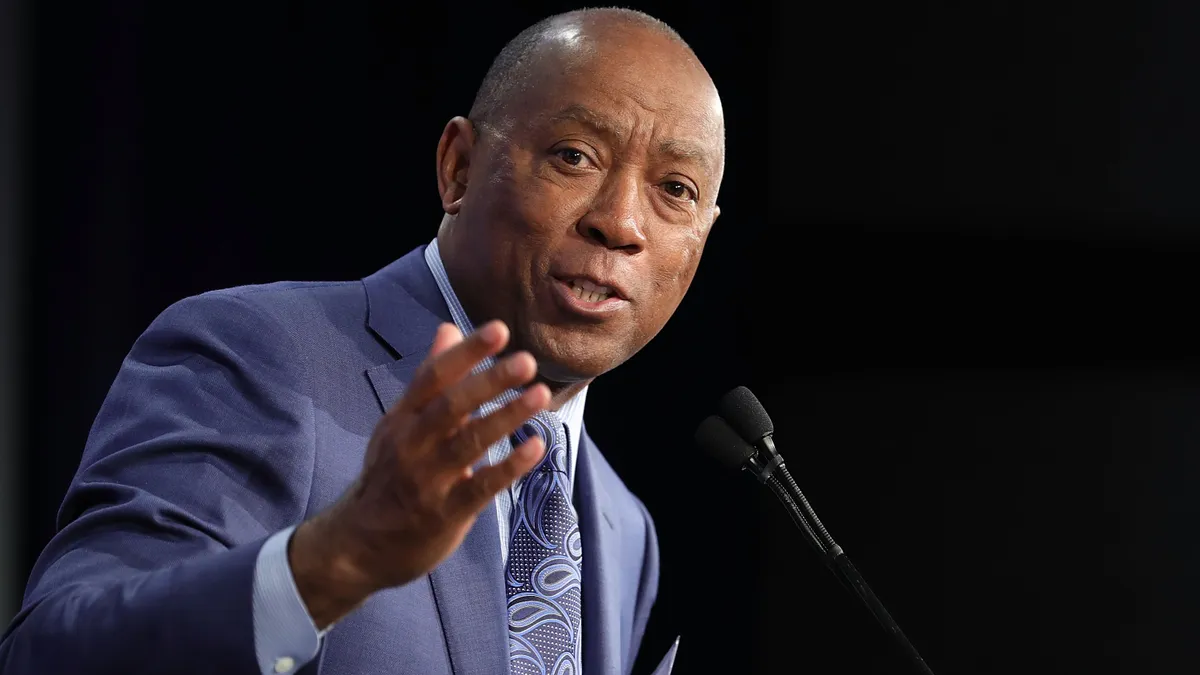Dive Brief:
- The U.S. Department of Justice will investigate the City of Houston to determine if its response to illegal dumping reports discriminates against Black and Latino residents. The DOJ’s Civil Rights Division announced the environmental justice investigation on Friday.
- The DOJ will look into Houston’s “operations, policies and practices” to decide if it has violated of Title VI of the Civil Rights Act, which prohibits discrimination on the basis of race, color or national origin. The City of Houston calls the investigation “baseless.”
- The investigation was spurred by a complaint Lone Star Legal Aid filed in January on behalf of residents in a Northeast Houston neighborhood with predominantly Black and Latino residents who say the city ignored their frequent complaints of illegal dumping.
Dive Insight:
The DOJ investigation is a notable case of a federal agency focusing its enforcement efforts on a municipal solid waste issue. Federal officials say more such EJ investigations could be in the works across the country. The Biden administration considers environmental justice a major priority, and numerous other federal agencies, including the U.S. Environmental Protection Agency, have included EJ strategies in their long-term plans.
The Houston complaint alleges that the city failed to respond to illegal dumpsite concerns and service requests in the Trinity and Houston Gardens Super Neighborhood 48. Residents frequently make calls complaining about the illegal dumping of items like household trash, medical waste, mattresses, tires and dead bodies, said Assistant Attorney General Kristen Clarke, who heads the DOJ’s Civil Rights Division, in prepared remarks. The ongoing situation has caused health and safety concerns and devalues residents’ property, she said.
Lone Star Legal Aid has said Houston’s lack of zoning laws also contributes to neighborhood health concerns because it allows industrial operations to set up near homes, exposing residents to pollution. Houston is considered a birthplace of the EJ movement, due in part to its numerous waste facilities, a lack of zoning, and history of litigation and community protests against pollution.
The DOJ says it will focus on Houston’s Solid Waste Management Department, 311 system, police department and Department of Neighborhoods, “all of which play central roles in the City’s receipt of, and response to, concerns and service requests related to illegal dumpsites.” The services all receive federal financial assistance, it said.
The City of Houston has not responded to requests for comment as of press time, but Mayor Sylvester Turner in a news release called the investigation “absurd, baseless, and without merit.” He added that the city “aggressively” responds to illegal dumping complaints made through its 311 reporting system and has spent millions of dollars addressing the issue. Houston did not receive advance notice of the investigation, he said.
In 2021, the Houston City Council also doubled the fine for illegal dumping from $2,000 to $4,000, he added.
David Biderman, president and CEO of the Solid Waste Association of North America, said it is unusual for the DOJ to open an environmental justice investigation related to how a municipality handles solid waste issues, but he said SWANA has been “closely monitoring increased environmental justice initiatives at the federal level.”
The DOJ launched its Office of Environmental Justice and enforcement strategy earlier this year, signaling its efforts for more “timely and effective remedies for systemic environmental violations and contaminations,” particularly in underserved communities “that have been historically marginalized and overburdened.”
The Houston investigation “exemplifies the department’s commitment to alleviating disproportionate environmental burdens borne all too often by communities of color, low-income communities and tribal communities,” said Todd Kim, assistant attorney general of the DOJ’s Environment and Natural Resources Division, in a statement.
The Civil Rights Division announced its first Title VI EJ investigation in November. That investigation is looking into whether wastewaster disposal and infectious disease programs of the Alabama Department of Public Health and Lowndes County Health Department discriminate against Black residents.















